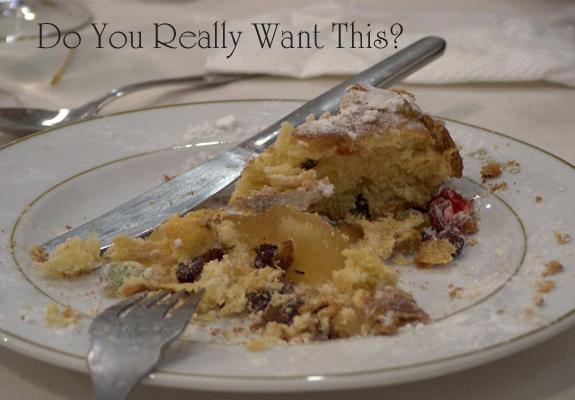
Does the fear of hunger seem ridiculous to you? I mean, really, who is afraid of hunger? In developed countries you can get take-out at all hours of the night, convenience stores are open 24 hours a day, and many restaurants stay open until 2:00 a.m.
But even with all of that, there is often a very real issue with emotional hunger when you lose weight. Oftentimes it is not physical hunger that we are afraid of, but emotional hunger.
As a 300-pound woman, the feeling of physical hunger was unfamiliar. I literally grazed on food from the minute I woke up in the morning to right before I turned in for the night. I never, ever got truly physically hungry during those 10 years of morbid obesity.
I did however, get emotionally hungry and I used food as a way to fill that emotional need.
Bored? Eat a few cookies.
Stressed? Grab a spoon and have a few bites of ice cream. And then a few more. And a few more. . .
Tired? Chips were the solution for that one.
Anxious? Chocolate always seemed to solve the problem.
Those foods did seem to solve the problem temporarily. But like other temporary solutions to a permanent issue, the feelings of satisfaction that came after I soothed emotions with food quickly faded away.
After I finished off the chips or ice cream the emotions were still there and I still had not addressed the underlying issues.
Not identifying myself as a person who tended to eat based on emotions as well as hunger definitely hindered my weight loss efforts over the years. Even during the times when I successfully lost a few pounds I never once thought about the fact that I was eating when I wasn’t really hungry.
Instead I only focused on eating this or not eating that in an attempt to get the scale to drop. And the scale did drop as long as I followed the plan, but as soon as I had a bad day or something unexpected happened, I turned to food again. And the food I turned to was not apple slices, but instead, apple dumplings smothered with ice cream or whipped cream.
I often wonder if I had had read something about emotional eating or had someone I trusted ask me about what role emotions played in my weight if I would have had a “light bulb” moment and started to take steps to stop filling emotional hunger with physical food.
Perhaps. But no one ever did and it took me a long time to understand the powerful emotions surrounding my weight troubles.
This issue of fearing emotions and feeding emotions with food is sorely under talked about – at least in my experience. I cannot tell you how many people have had that “light bulb” moment when we really get into the reasons why they reach for food when they are not physically hungry. I would encourage you to consider using an emotions journal to try and pinpoint whether or not you are an emotional eater and what emotions push your food buttons.
If you find that emotional eating is a likely source of your weight issues, I hope that you will take some steps to deal with those emotions in a way that does not involve food.
Until you deal with the emotions behind your food choices, you will likely have trouble maintaining any weight loss.
Here are a few strategies that may help you deal with your emotions both during weight loss and into weight maintenance:
Identification
Use a journal to pinpoint times when you are feeling the need to binge, snack unnecessarily, or simply eat when you are not feeling hungry. Ask yourself what the emotion is that you are feeling and what foods you are using to soothe or suppress that emotion.
Strategize
This can be done with the help of a therapist or counselor, or just by yourself. I found that setting a timer for 15 minutes before I ate any food that wasn’t either one of my three meals or planned snack helped me put some distance between the emotions and the food. During the 15 minutes I’d get busy spending time with the kids, talking on the phone, or doing something with my hands. More often than not, when the timer rang, I didn’t eat the unnecessary food, but instead had identified the emotion and found a healthier way to deal with it.
Other strategies can include exercising when you are feeling emotionally stressed, getting out of the house for awhile, talking to a trusted friend, or taking a drive. The key is doing something that enables you to focus on the emotion without involving food.
Monitor
Monitor how you are doing either through journaling or just by asking yourself a simple question each night before you go to bed. “Did I eat from emotional hunger today or was I able to choose foods based on physical hunger?” Touching base with yourself regularly really can help you stay on top of emotional eating.
How do you do with emotions and hunger and do you feel like this is an important issue? Any tips for others? Diane
(c) Diane Carbonell Weight Loss Expert – Read entire story here.